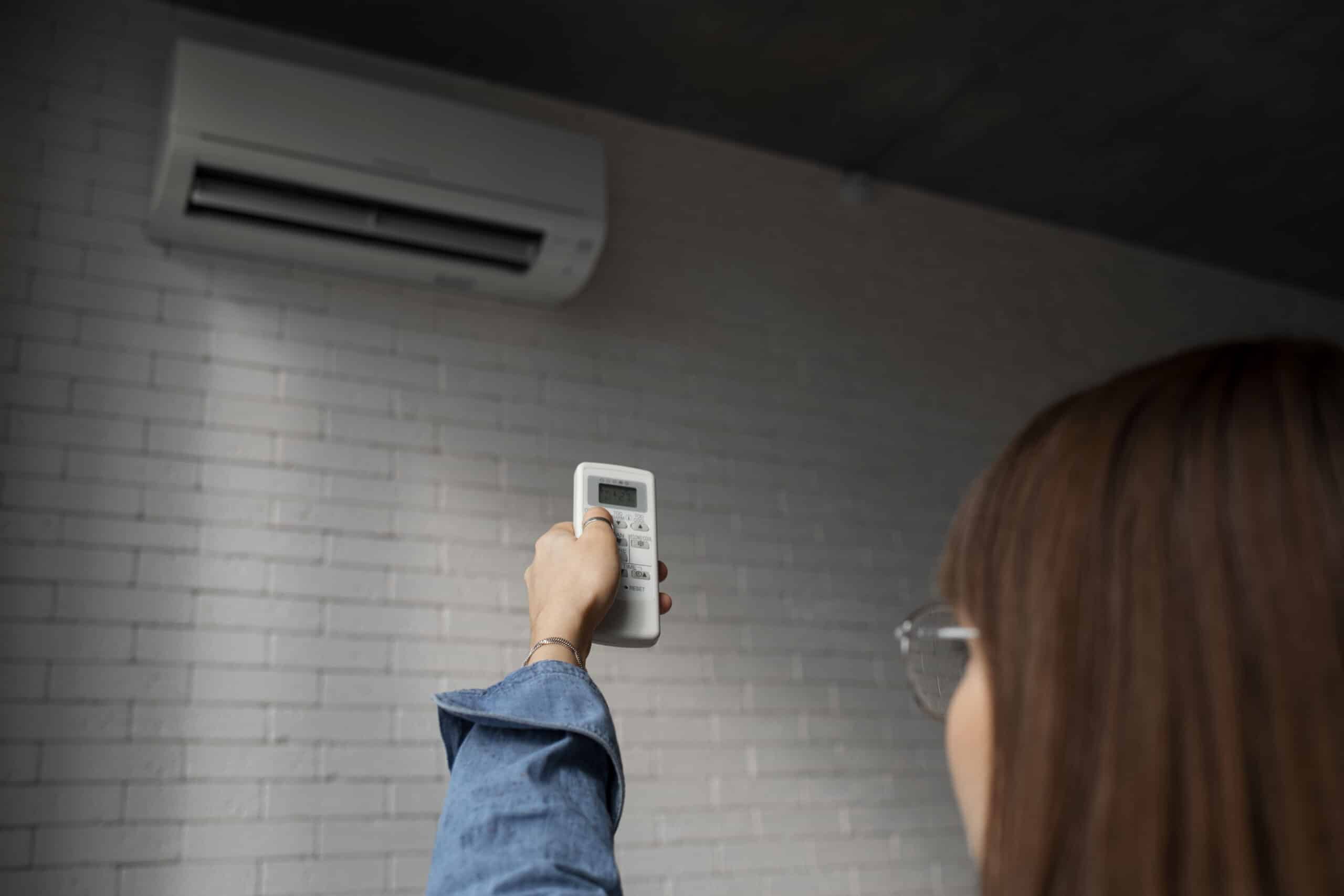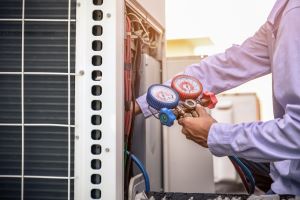How to Choose the Right HVAC System for Your Demands
Picking the ideal cooling and heating system is an essential choice that needs cautious consideration of various variables. Begin by reviewing your home's dimension, design, and unique requirements, as these components determine the required capacity and arrangement of the system. Furthermore, establishing a budget that incorporates setup and long-term functional expenses is vital. As you weigh your alternatives, comprehending energy performance scores and the implications of your neighborhood climate will play a substantial function in your selection. The myriad of system kinds readily available can complicate this process, leading one to question which path eventually leads to optimal comfort and efficiency.
Assess Your Home Size
Evaluating your home dimension is a vital initial action in picking the ideal HVAC system. A Heating and cooling system that is too small will struggle to maintain comfortable temperatures, leading to increased energy consumption and use on the device.
To properly analyze your home dimension, gauge the square video of each area, thinking about aspects such as ceiling elevation and the design. Furthermore, consider the insulation quality and the number of home windows, as these components impact thermal performance. Homes with open floor strategies might need different system configurations contrasted to those with lots of split spaces.
Utilizing the Guidebook J tons calculation method can provide an extra exact quote of your HVAC requires. This technique accounts for various variables, including local environment, solar gain, and occupancy patterns. By carefully reviewing these elements, you can guarantee that your picked a/c system is properly sized, leading to boosted comfort, power efficiency, and long life of the devices.
Determine Your Spending Plan
Establishing your budget is a pivotal action in the HVAC system option process, as it establishes the parameters for your alternatives - DMAKS HVAC. A heating and cooling system is a significant investment, and recognizing your monetary restrictions will aid limit options that fit within your means
Begin by examining not just the initial acquisition price however additionally installation expenses, which can differ considerably relying on the complexity of the job. In addition, consider continuous costs such as maintenance, repair services, and power consumption. A system may show up budget-friendly originally but can result in greater prices with time if it is less efficient.
It is a good idea to allot a backup fund for unanticipated expenses that may occur during setup or first system changes (DMAKS HVAC). In addition, explore financing options or rebates that may be offered, as these can relieve the problem of in advance expenses
Eventually, having a clear budget permits you to involve with heating and cooling professionals extra successfully, ensuring you obtain tailored advice that straightens with your monetary objectives and home requirements. By being persistent concerning your budget plan, you can make informed choices that enhance convenience without compromising economic stability.
Evaluate Power Efficiency
Power efficiency plays an essential function in the total performance and cost-effectiveness of your cooling and heating system. When choosing a system, it is important to consider its power efficiency rankings, as these figures directly influence your utility costs and environmental impact. Seek systems with a high Seasonal Energy Performance Ratio (SEER) for cooling and a high Yearly Fuel Use Performance (AFUE) rating for home heating. Greater ratings suggest better efficiency, indicating more comfort for much less energy usage.
Additionally, think about the Power Celebrity qualification, which signifies that the system satisfies rigid performance standards established by the Environmental Protection Agency. Investing in an Energy Star-rated a/c system can bring about substantial savings over time, particularly in areas with extreme temperature level changes.
An additional variable to review is the system's dimension and ability. An extra-large or small device can bring about inadequacy and raised power prices. DMAKS HVAC. Appropriate sizing, usually established via a Hand-operated J lots computation, makes sure that the system operates at ideal efficiency


Think About Environment and Environment
When selecting a heating and cooling system, it is vital to take into consideration the local climate and environmental conditions, as these aspects dramatically affect the system's efficiency and performance. Different regions experience varying temperature extremes, humidity levels, and seasonal changes, all of which impact heating and cooling needs.

Furthermore, neighborhood environmental variables, such as air quality and possible allergens, must inform your option. Equipments geared up with innovative filtration innovations can help reduce toxins great site and provide cleaner air. Furthermore, take into consideration the energy resources readily available in your area-- some a/c systems are more effective when powered by all-natural gas or renewable resource resources.
Inevitably, aligning your a/c system option with your local climate and ecological factors to consider will certainly lead to improved convenience, boosted performance, and lower energy expenses.
Explore System Types and Attributes
As home owners seek to optimize comfort and effectiveness, checking out the numerous kinds of HVAC systems and their distinct functions ends up being necessary. The key kinds of HVAC systems include central air conditioning, heat pumps, ductless mini-split systems, and furnaces. Each system offers distinct advantages tailored to different needs and preferences.
Central air conditioning systems provide uniform air conditioning throughout a home, making them suitable for bigger areas. Heatpump function as both heating and cooling services, utilizing electricity to transfer warmth, which can cause lower energy costs. Ductless mini-split systems are becoming significantly preferred as a result of their versatility and simplicity of installation, allowing homeowners to regulate the temperature level in private rooms without extensive ductwork.

Conclusion
Finally, choosing the ideal HVAC system necessitates cautious consideration of different variables, consisting of home size, budget constraints, energy effectiveness, regional environment, and readily available system kinds. A thorough assessment of these elements guarantees optimal comfort and cost-effectiveness. By complying with a structured method, house owners can make educated decisions that line up with their certain requirements and preferences, eventually resulting in improved indoor air quality and energy savings.
Comments on “High-Quality Repairs for Your Equipment Provided by DMAKS HVAC.”